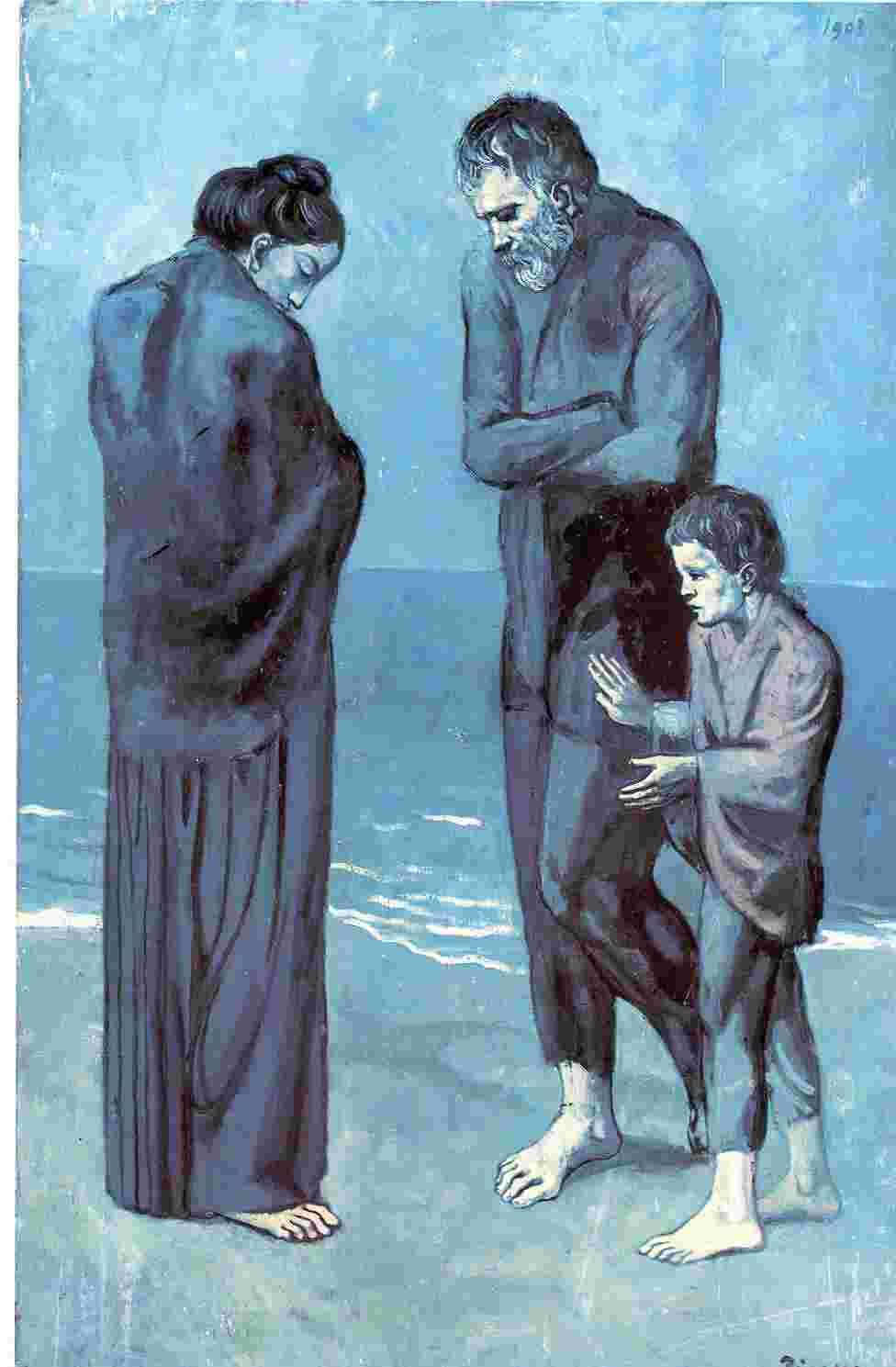
|



|
| This page is Bobby
Worldwide Approved for Section 508.
|
|
 |
 |
 |

Consumer Watch
Still Getting Punished for Being
Poor
BOB RICHARDS
The Capital Times (Madison, WI), March 8, 2003
|
 Poor People on the Shore,
Poor People on the Shore,
by Pablo Picasso (1903).
|
It costs a lot of money to be poor in
America.
Bankruptcy, check cashing and payday loan stores, credit reporting
inaccuracies, and predatory lending all were frequent topics as
activists recently gathered for the Consumer
Federation of America's Consumer Assembly, the nation's largest
annual meeting of consumer advocates.
"The Republican majority is going to again introduce a punitive
bankruptcy bill," House Minority Leader Nancy Pelosi, D-Calif.,
told the group. "Now with the economy in worse shape with many
more people out of work, the harsh impact of this legislation will
be more widely felt than it would have been last year."
But Sen. Orrin Hatch, R-Utah, defended the measure at a different
session, saying the bankruptcy system needs to be fixed because it
allows wealthy people to abuse the system.
Rep. Harold Ford Jr., D-Tenn., told the group that after having
trouble correcting a mistake he found in his credit report, he
learned that many of his constituents also had experienced that same
problem.
"The other person also had my name," he explained,
"but Harold was spelled differently. I thought it was
inherently unfair that when the credit-reporting agency received
information about me, they didn't go check it out. Hopefully before
this Congress is up we will take some action."
The impact of a 1999 federal law that required all federal payments
to be transferred electronically has meant that many low-income
consumers pay higher fees to obtain their federal benefit checks,
according to Philadelphia Legal Services attorney Irv Ackelsberg.
One argument for the direct deposit law was that it would get
everyone into the banking system, but Ackelsberg said, that wasn't
implemented. Instead many low-income consumers still depend on
check-cashing stores.
Ackelsberg said one check-cashing firm near his office offers direct
deposit through a relationship with a bank, but you still must go to
the check-cashing store to get your money. The required fees include
a $14.50 enrollment fee, a $1 per month maintenance
fee, and then a check-cashing fee of $1.95.
"What they do is turn that electronic transfer into a paper
check," Ackelsberg said. "It used to be that you got a
check and then paid a fee to cash it. Now you have to pay to get the
check and then you still have to pay a fee to cash it."
In another case, he said, a check-cashing store charged his client
$11 per month to have an automatic teller machine card, as well as
$2.50 for each deposit into the account and $1 for each withdrawal.
Consumer Product
Safety Commission Chairman Hal Stratton told the group that
all-terrain vehicles, arsenic-treated wood, and baby bath seats are
some of the products now under scrutiny by his agency. ATVs, he
said, continue to cause approximately 11,000 injuries each year.
While consumers continue to face increasing challenges in finding
safe and reliable products, they now are also seeing their ability
to pursue remedies to problems threatened by binding
arbitration clauses, according to attorney Michael Quirk of Trial
Lawyers for Public Justice.
More and more consumers, Quirk says, are discovering that they must
submit their disputes to a private arbitrator who is not obligated
to follow the existing law in his or her decision.
Sen. Hillary Clinton, D-N.Y., told the group that tougher food
safety standards are needed, especially in the area of ready-to-eat
products.
"USDA and FDA have provided guidelines to at-risk consumers
such as pregnant women, yet none of this information is provided on
a package label," she said. "If the meat industry cannot
provide assurances that food is truly ready to eat for all
consumers, then
the product should bear a label warning at-risk consumers of their
risk."
Clinton says she will co-sponsor legislation with Sen. Tom Harkin,
D-Iowa, designed to set stronger performance standards for the meat
and poultry industry.
-- Bob Richards is a Madison-based
consumer advocate. He's the author of It's in the Fine Print.
|
 |
 |